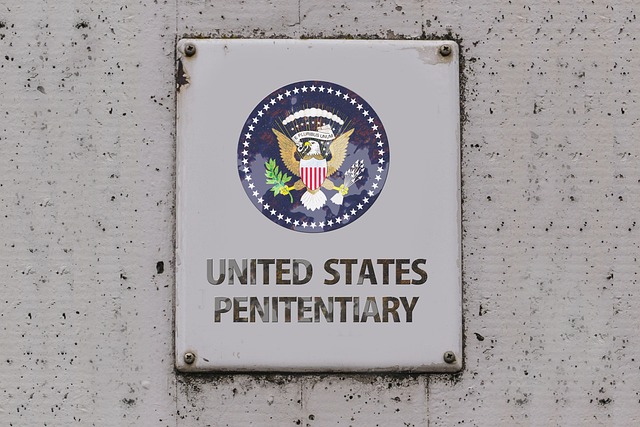Online privacy is a crucial concern in modern society, especially regarding drunk driving (DUI) incidents that impact pedestrians' rights. As technology tracks digital footprints, location data, and online activities can be misused in legal proceedings. Protecting pedestrians' anonymity during DUI cases is essential to ensure their privacy and fair treatment. Tools like anonymous browsing and VPN services help maintain confidentiality. Balancing safety measures with individual liberties and strict data protection protocols is key. New legal frameworks focus on strengthening pedestrians' rights while adapting online privacy laws, aiming to create safer digital environments through anonymized data collection and improved collaboration between tech companies and law enforcement.
Online privacy is a rapidly evolving issue with profound implications for pedestrians’ rights, especially in the context of DUI incidents. As our digital footprints grow, so does the potential for misuse of personal data by law enforcement. This article explores the complex interplay between online privacy and pedestrian safety, delving into emerging concerns, legal strategies, and tools that protect anonymity. We discuss the balance between public safety and individual liberty, and look ahead to future online privacy laws aimed at safeguarding pedestrians’ rights in DUI cases.
- Understanding Online Privacy and its Impact on Pedestrians' Rights
- The Rising Concern: DUI Incidents Involving Pedestrians
- Digital Footprints and Their Role in Legal Proceedings
- Protecting Anonymity: Tools and Strategies for Pedestrians
- Balancing Public Safety and Individual Liberty
- The Future of Online Privacy Laws for Pedestrian Protection
Understanding Online Privacy and its Impact on Pedestrians' Rights

Online privacy has become a pressing issue in modern society, especially as technology continues to shape our daily lives. With every click, search, and online interaction, individuals are leaving digital footprints that can be tracked and analyzed. This raises significant concerns about personal information and its potential impact on various aspects of life, including pedestrians’ rights.
In the context of DUI (Driving Under the Influence) incidents, understanding online privacy becomes crucial. Pedestrians involved in such cases may face challenges related to their digital presence. For instance, their location data, search history, or social media activities could be used as evidence, potentially infringing on their right to privacy. Protecting online privacy is essential to ensure that individuals retain control over their personal information and that their rights are respected, especially during legal proceedings involving DUI.
The Rising Concern: DUI Incidents Involving Pedestrians

The concern over drunk driving (DUI) incidents has evolved, shifting its focus to a critical area: the safety of pedestrians. As more people take to the roads after consuming alcohol, the risk of accidents involving pedestrians increases significantly. These incidents have far-reaching consequences, not just for the individuals involved but also for communities at large. Pedestrians, who are often vulnerable road users, face heightened dangers when they come into contact with drivers under the influence.
Protecting pedestrians’ rights in DUI incidents is a pressing matter that demands attention. It involves ensuring fair treatment and justice for those affected by such accidents, as well as implementing measures to prevent future occurrences. By raising awareness about the impact of DUI on pedestrians and strengthening legal frameworks, communities can work towards creating safer environments for everyone who shares the roads.
Digital Footprints and Their Role in Legal Proceedings

In the digital age, our online activities leave behind a trail of data known as digital footprints. These footprints, created through browsing histories, social media posts, and online transactions, have become powerful tools in legal proceedings, especially in cases like DUI incidents involving pedestrians. With just a few clicks, investigators can uncover a wealth of information about individuals, offering insights into their behavior, habits, and potential biases that could impact their credibility as witnesses or defendants.
For instance, digital footprints can reveal a pedestrian’s online search history related to traffic laws or previous experiences with law enforcement, which may be relevant in a DUI case. This data can also include social media posts, messages, and check-ins that provide context about the individual’s activities and interactions on the night of the incident. While this technology offers significant advantages for legal processes, it also raises concerns about privacy rights, particularly when it comes to protecting the interests of pedestrians involved in DUI incidents.
Protecting Anonymity: Tools and Strategies for Pedestrians

In today’s digital age, where every click and step can be tracked, protecting anonymity is paramount for pedestrians concerned about their privacy, especially in the context of DUI incidents. Pedestrians have rights, and safeguarding their online activity is a crucial aspect of ensuring those rights are upheld. Tools like anonymous browsing modes, proxy servers, and VPN services offer practical strategies to maintain a level of confidentiality while navigating public spaces and online platforms.
These measures help pedestrians avoid leaving digital footprints that could potentially be exploited in the event of a DUI investigation. By employing such tools, individuals can better protect themselves from online surveillance, ensuring their privacy remains intact even when facing legal challenges related to driving under the influence.
Balancing Public Safety and Individual Liberty

Online privacy and driving safety are intertwined issues that demand a delicate balance between public welfare and individual liberties. As technology advances, gathering and utilizing personal data to enhance road security has become increasingly feasible. However, this raises concerns about how such information is handled and protected. Pedestrians’ rights, especially in cases involving DUI (Driving Under the Influence), must be considered alongside the need for comprehensive safety measures.
Ensuring public safety should not infringe upon citizens’ freedom or create a culture of excessive surveillance. It’s crucial to implement policies that protect both drivers and pedestrians while respecting privacy. This might involve using data analytics to identify high-risk areas, optimize patrol routes, and even predict potential incidents, all while maintaining transparency and strict data protection protocols to safeguard the rights of individuals caught up in DUI investigations or similar scenarios.
The Future of Online Privacy Laws for Pedestrian Protection

As online privacy laws continue to evolve, there’s a growing recognition of the need to protect pedestrians from potential dangers associated with drunk driving. With the rise of connected devices and data collection, ensuring privacy for individuals who may be indirectly affected by DUI incidents is a significant concern. Future legal frameworks will likely enhance regulations around data sharing and user consent, especially in cases where real-time location services are involved. This shift aims to safeguard pedestrians’ rights without compromising on public safety.
The focus on strengthening online privacy laws for pedestrian protection could lead to innovative solutions. These may include anonymized data collection for DUI surveillance, advanced mapping technologies that identify high-risk areas, and improved collaboration between law enforcement agencies and tech companies. Such developments promise a safer digital environment, particularly for pedestrians, by addressing the intersection of privacy and public safety in the online realm.
Online privacy is a pivotal aspect of modern life, especially regarding pedestrians’ rights and safety. As digital footprints grow, so does the need for comprehensive legal protections. The balance between public safety and individual liberty demands closer scrutiny of online activities, particularly in the context of DUI incidents involving pedestrians. By leveraging advanced tools and strategies, pedestrians can safeguard their anonymity and ensure their rights are upheld. In the evolving landscape of online privacy laws, staying informed and proactive is crucial to protect ourselves and our communities from potential hazards on the roads and beyond.






